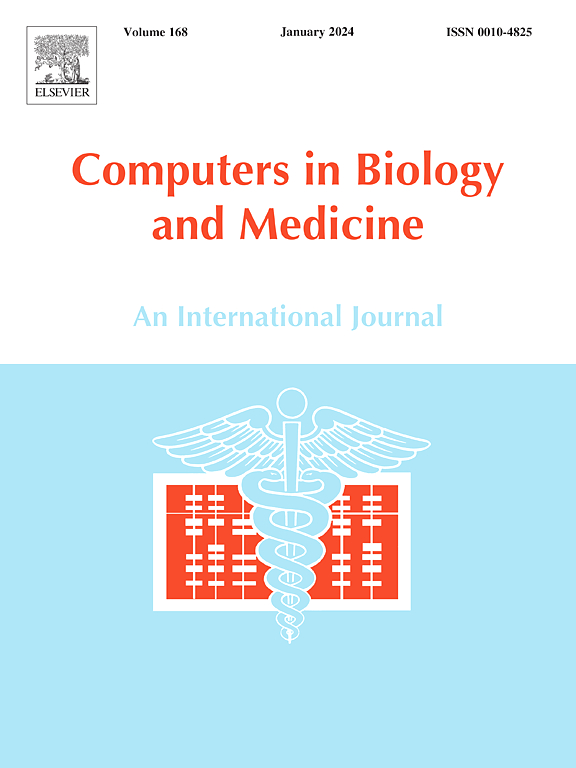Advancement in hepatocellular carcinoma research: Biomarkers, therapeutics approaches and impact of artificial intelligence
IF 6.3
2区 医学
Q1 BIOLOGY
引用次数: 0
Abstract
Cancer is a leading, highly complex, and deadly disease that has become a major concern in modern medicine. Hepatocellular carcinoma is the most common primary liver cancer and a leading cause of global cancer mortality. Its development is predominantly associated with chronic liver diseases such as hepatitis B and C infections, cirrhosis, alcohol consumption, and non-alcoholic fatty liver disease. Molecular mechanisms underlying HCC involve genetic mutations, epigenetic changes, and disrupted signalling pathways, including Wnt/β-catenin and PI3K/AKT/mTOR. Early diagnosis remains challenging, as most cases are detected at advanced stages, limiting curative treatment options. Diagnostic advancements, including biomarkers like alpha-fetoprotein and cutting-edge imaging techniques such as CT, MRI, and ultrasound-based radiomics, have improved early detection. Treatment strategies depend on the disease stage, ranging from curative options like surgical resection and liver transplantation to palliative therapies, including transarterial chemoembolization, systemic therapies, and immunotherapy. Immune checkpoint inhibitors targeting PD-1/PD-L1 and CTLA-4 have shown promise for advanced HCC. In this review we discuss about emerging technologies, including artificial intelligence and multi-omics platforms for HCC management by enhancing diagnostic accuracy, identifying novel therapeutic targets, and enabling personalized treatments. Despite these advancements, the prognosis for HCC patients remains poor, underscoring the need for continued research into early detection, innovative therapies, and translational applications to effectively address this global health challenge.
肝细胞癌研究进展:生物标志物、治疗方法和人工智能的影响。
癌症是一种领先的、高度复杂的、致命的疾病,已成为现代医学的一个主要问题。肝细胞癌是最常见的原发性肝癌,也是全球癌症死亡率的主要原因。它的发展主要与慢性肝病,如乙型肝炎和丙型肝炎感染、肝硬化、饮酒和非酒精性脂肪性肝病有关。HCC的分子机制涉及基因突变、表观遗传改变和信号通路中断,包括Wnt/β-catenin和PI3K/AKT/mTOR。早期诊断仍然具有挑战性,因为大多数病例是在晚期发现的,限制了治愈治疗的选择。诊断技术的进步,包括甲胎蛋白等生物标志物和尖端成像技术,如CT、MRI和基于超声的放射组学,都改善了早期检测。治疗策略取决于疾病的分期,从手术切除和肝移植等治疗选择到姑息治疗,包括经动脉化疗栓塞、全身治疗和免疫治疗。靶向PD-1/PD-L1和CTLA-4的免疫检查点抑制剂已显示出治疗晚期HCC的希望。在这篇综述中,我们讨论了新兴技术,包括人工智能和多组学平台,通过提高诊断准确性、识别新的治疗靶点和实现个性化治疗来管理HCC。尽管取得了这些进展,但HCC患者的预后仍然很差,因此需要继续研究早期发现、创新疗法和转化应用,以有效应对这一全球健康挑战。
本文章由计算机程序翻译,如有差异,请以英文原文为准。
求助全文
约1分钟内获得全文
求助全文
来源期刊

Computers in biology and medicine
工程技术-工程:生物医学
CiteScore
11.70
自引率
10.40%
发文量
1086
审稿时长
74 days
期刊介绍:
Computers in Biology and Medicine is an international forum for sharing groundbreaking advancements in the use of computers in bioscience and medicine. This journal serves as a medium for communicating essential research, instruction, ideas, and information regarding the rapidly evolving field of computer applications in these domains. By encouraging the exchange of knowledge, we aim to facilitate progress and innovation in the utilization of computers in biology and medicine.
 求助内容:
求助内容: 应助结果提醒方式:
应助结果提醒方式:


